As long as fiction book shoppers continue to type phrases into Amazon’s search bar when looking for their next fiction book, keywords will always be an important part of any book’s discoverability. This is especially true for new fiction authors.
Many avid shoppers know how to describe the book they are looking for. Knowing those keywords and phrases is powerful knowledge to have as an author, so we know how to get our books to show up on Amazon's search results.
So, how do we find these terms that shoppers use?
That's exactly what we'll cover in this article. I'll not only show you how to come up with the words and phrases your readers use when shopping for their next book, I’ll even show you how to find out how many people type them in so you get the full picture before making keyword decisions.
- How to research which words people use
- How to select keywords for your fiction book that will help you sell more
- Examples of successful keywords in each major fiction genre
Table of contents
P.S. As someone who’s been a consultant to multiple NYT bestselling fiction authors and major publishing companies, I assure you, this is information that even the best know is important. Even Amazon thinks so and even promoted this article to their readers, plus changed their recommendations to users on their help page to reflect the below data:

How to Find Fiction Keywords That Shoppers Really Use
Nonfiction keywords are easy. They are pain points, solutions, or results – that's how a nonfiction readers searches on Amazon. You can learn more about them here. However, fiction keywords are about describing the story, settings, and characters.
So, how do you come up with phrases that shoppers use to describe such things without aiming towards super competitive terms?
Note: There's a tool that will help you do this most efficiently, but I will also teach you the manual way to do all the research. It will take you a lot more time, but it is possible.
Step 1: Brainstorm The Four Types of Fiction Keyword Categories
When you start your fiction keyword research, brainstorm a list of words that describe your book in each of the four categories below. Then in the next step, I’ll show you how to use your list to find the right combination of words, so you create keyword phrases that will help your book get discovered.
Four Fiction Keyword Categories:
- Time Period and Settings
- Character Types or Roles
- Plot Themes or Special Events
- Style and Tone of Your Genre
Let’s look at each in detail:
Time Period & Settings
The location and time period says a lot about your story and what your reader can expect. Examples are the Victorian era, Medieval Times, Jurassic, Industrial Age, United States Bicentennial, modern, and near future. With each of these, you could probably envision a little bit about the story just by knowing when the story takes place.
While time periods describe a point in time, settings can be environmental or location. Sometimes a setting can have a perceived time period associated with it. If I say the Wild West, you probably think of the 1800s cowboys out West, right? If I say the Caribbean, there’s a good chance you think of the pirates in the 1660s. So, just understand that the way you describe a setting can have a perceived time period associated with it. This could be things like Western, prairie, jungle, battlefields, encampments, prison, or sanitarium.
Here are some examples of this on book covers:
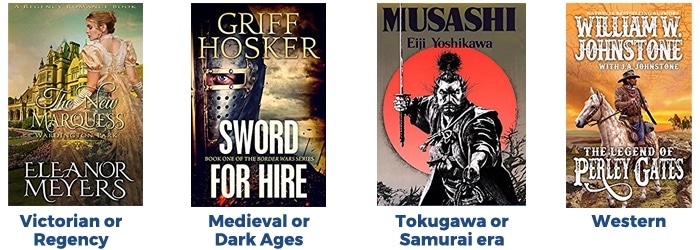
ACTION: Come up with a list of words that describe the setting or settings in your story. Then think of ways to describe the time period. Dive deeper to think about a combination of the two. Is there a word for the setting that also dictates the time period?
Character Types and Roles
The type or role of a character can have a big impact on your story. Character types like alpha male, mutant, zombie, survivalist, Lycan, single mother, and serial killer each paint a unique story. We can even get more granular than that. A male character that has magical powers can be called a wizard, mage, magician, sorcerer, warlock, necromancer, and more. But each of those is different in their power, role, or background.
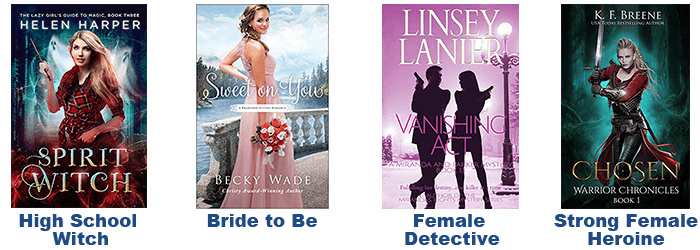
ACTION: Think about your characters and the different ways to describe who they are that helps tell the remarkable story.
—>At this point, you could just start combining words or phrases to create your 7 keywords upon uploading your book. However, you’re only taking a guess. The next step will help you figure out which keywords can REALLY help you sell more books.
As a fiction author, you could just GUESS at the best Amazon keywords...or you could KNOW exactly what your readers are looking for with 2 simple steps #IndieAuthorsClick To TweetPlot Themes & Special Events
Special events are the description of an occurrence, action, or something in history. In history, it could be a story centered around the American Civil War or your character's adventure occur during the Great Depression. An occurrence or action could be something like a mass human extermination due to a disease or a harrowing tale of survival from a plane crash. In essence, it is the description of the catalyst that is causes the story to unfold.
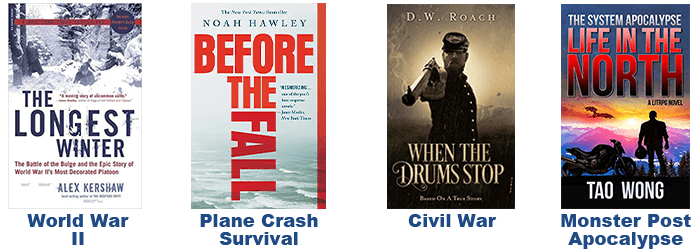
ACTION: Think about any events that cause your story to occur or take place around your characters.
Style and Tone of Your Genre
Every genre has a different tone or style to it. In romance, there are different levels of passion: wholesome, Christian, sweet, hardcore, erotica, etc. In science fiction there is real science, post-apocalyptic, space opera, sci-fi military, etc. You could also call these sub-genre titles. But remember, some shoppers don’t exactly know what they want or what a sub-genre title is. They just shop by describing their desired style or tone of the genre in some way.
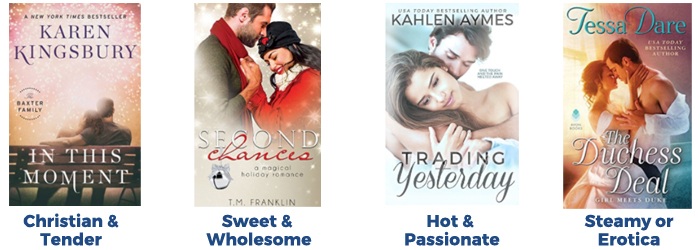
ACTION: Think of different ways to describe your book's genre and tone.
By this point, you should have a hefty list of potential keywords that you could use. However, you don't yet know if any of these keywords are good keywords, or if any particular combination of them would work better than others. That's where our next step comes in…
Best Book Marketing Software
Over 47,000+ authors, NYT bestsellers, and publishing companies use Publisher Rocket to gain key insight to the market. Help your book now
Get Rocket NowStep 2: Find the Right Combination of Phrases
Typically, going after a single word or broad phrase keyword will be fruitless. A word or broad phrase does not adequately portray the story. Plus, you'll find that the broader the term is, the harder it will be to rank for it.
Therefore, we need to combine words from our lists created above and find pairings that not only represent the specific story of our book, but are word pairings that shoppers actually type and have low enough competition so that we can get our book to show up in front of those shoppers.
To do this, I’ll be using Publisher Rocket. It’s the only tool out there that will tell you the following:
- What words people type into Amazon
- How many people type those words into Amazon
- How much money the books that rank for those words make
- The level of competition to rank for that keyword phrase
As you can see in the above screenshot, Publisher Rocket will take all the suggestions you generated in Step 1, and give you a whole list of potential keyword combinations that could be used in your book title, subtitle, description, and of course, your 7 Kindle Keywords.
And not only that, but the estimated searches and competitive score are color-coded, so you have a good idea of what works and what doesn't. This isn't just based on the number, but on a whole complicated slew of historical data and other factors to consider for the health of the keyword.
That's why you might have one keyword with a search volume that is yellow, even though the number is greater than one that is green. In other words, Rocket is doing a lot of analysis for you, saving your time, and ultimately helping you sell more books.
Publisher Rocket has a full 30-day money back guarantee, so you are free to give it a try. Look for your keyword phrases, find the best ones, and start getting your book to show up more on Amazon.
And if you want to see a step-by-step guide on how to use Publisher Rocket, check out Sam Howard's review on NerdyBookGirl.com!
So what does it look like to put these keywords together using Publisher Rocket? Let's look at a few examples.
Examples of Fiction Keyword Research Results
Now that you have the process for finding legitimate fiction keyword phrases, let's look at some results in each major genre. This will not only show how important the numbers are but also show each of the four fiction descriptive types in action.
Science Fiction Keywords – Style or Tone of Genre Example

With the example above, I've shown that by niching down in the type of genre, we can identify areas that readers are searching for and have low competition for an author. “Science fiction” and “sci-fi military” are too broad and too competitive. As I narrowed further into “space marines,” I discovered that there are a significant number of readers who want a story about space marines fighting ant hive-like hordes of aliens (think Starship Troopers – or at least that’s the kind of story these sci-fi fans enjoy and are looking for).
Fantasy Keywords – Character Role or Type Example

This example shows the power of a single word and its popularity vs. competitiveness. Using six different synonyms for a man who performs magic, you can see where some opportunities lie. As you can see “mage” seems to offer the most optimal opportunities. Now, please understand that there are vast differences between a warlock and a magician, and this isn’t to say you should choose one when it doesn't fit your book. But when you have some that are very close like “wizard” and “mage,” your book will have more opportunity to be discovered by going with the keyword “mage.”
Romance Keywords – Genre Tone + Time Setting

In this example, we see how adding the time period “Victorian” to the type of romance “second chance” not only reduced the competition greatly, but it actually shows authors earning more money as well. Although searches per month are lower, it's great to see that there are still a significant number of searches with much lower competition.
The example of “second chance romance with baby” shows a unique but important aspect to shopper mentality. In this case, there are many shoppers who start looking for the romance genre style “second chance romance” but then realize they want it to be family-related. At the last moment, these shoppers add the phrase “with baby” to find the storyline they are searching for. And yes, there are an estimated 795 shoppers per month typing that into Amazon. Remember, when we do searches on Amazon, we commonly neglect grammar or spelling and just let the search engine figure it out. Haha…gotta love data analysis.
Romance Keywords – Character Role Example

As you can see from the data above, trying to find terms representing a rich man role or a dominant role produced vastly different numbers. “Billionaire romance” seems to be the most popular, however, “millionaire romance” is still highly searched for with much less competition. The other options don't seem as promising considering their high competition or lack of searches (as you can see with “rich man romance”).
Need Help with Your Keywords?
Take my full featured video course on how to select the best keywords and categories for your book.
Take the CourseWhy Niches Are So Important
As you can see in the above examples, it's important to niche down so that you have less competition. But Dave, you might be asking, if I niche down, doesn't that mean fewer searches?
Yes, you're right. The more niche you go, generally speaking, the fewer searches there usually are. But guess what? You also get:
- Less competition
- Higher conversion
I'm sure you can see why there is less competition. However, that last one is very important and I'll explain. Imagine someone who goes to Amazon and types in “Science Fiction.” Do you think they will find the exact type of fiction they are looking for and thus purchase off that search? Of course not! Most likely, “Science Fiction” is the beginning of their search and they keep changing their search term to be something more representative. And, as they niche down their term to something more descriptive of the type of Science Fiction they are looking for, they will get closer to what they are truly looking for.
Here is an example to highlight exactly that with numbers – again, using Publisher Rocket:

As you can see from the table above, the more niche we made the term, the fewer searches occurred, but the conversion rate increased.
The Math To Fiction Sales
So, why do the Amazon Searches Per Month numbers and Competition Score matter for our keywords?
Statistically speaking, if your book ranks at the top of the Amazon search results for a keyword phrase, 27% of everyone who types it in will click on your book.
If you rank #4, only 8% will click on it.
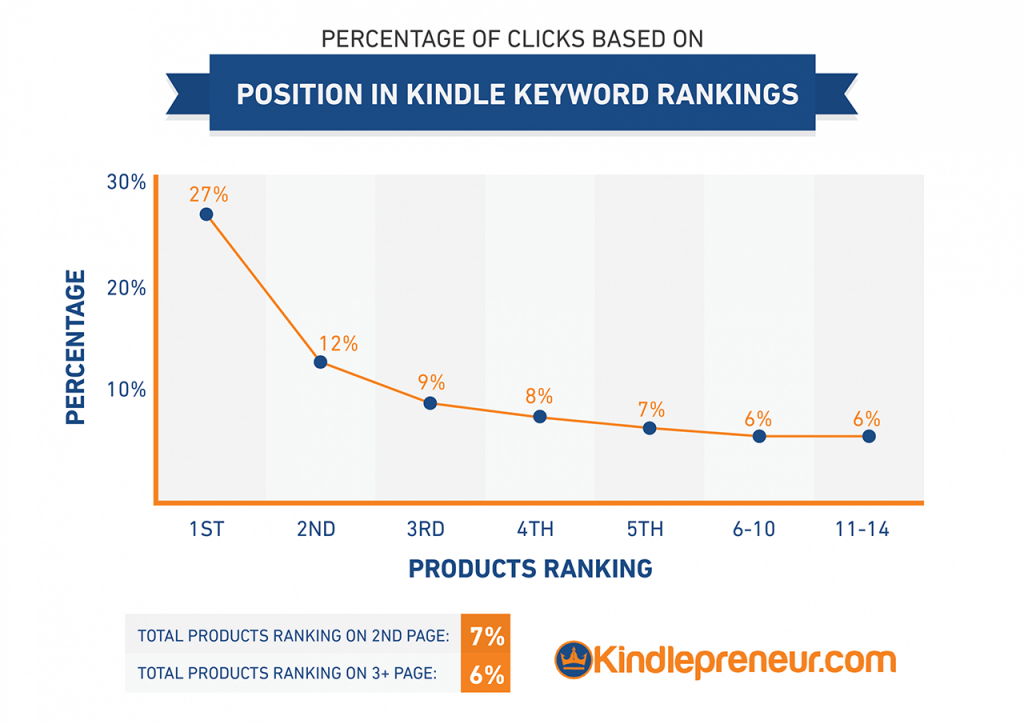
And if you want your book to appear at the top of the Amazon search results and benefit from your keywords, you need high enough searches but low enough competition.
Proof Why Your Fiction Keywords Matter
Here's an example to hit this point home:
Let’s say 1,000 shoppers per month search for a keyword phrase on Amazon and your book ranks #1 on the results page. You can expect 270 shoppers per month to click on your book.
That’s 270 new shoppers finding your book each month.
However, if you rank #6, you can expect 60 shoppers to click on your book. Sixty is still pretty cool and can really help, however, 270 is a lot better…like almost 5x times better.
So, thanks to the steps above, you now know which keywords people are actually typing into Amazon, as well as how competitive they are.
And just like that, we’ve turned online book marketing into a science.
Writing is the art, but is your book marketing missing the science? #BookMarketClick To TweetSo, Can Fiction Books Use Keywords?
After reading this, I’m sure you can now answer that question.
Again keywords are not a silver bullet that will make a bad book become a bestseller. But using keywords in the right way can be a powerful method in which to increase your book traffic and ultimately your sales.
The key is to get your book in front of the right shoppers.
Keywords for both fiction and non-fiction are an important part to online discoverability. But how well your designed book cover looks, how your book title reads, how your book description converts, how creative your story is, and how well your reviews are will impact your overall sales. The right keywords are what will help get your book in front of the right people.
So, take some time, do your research, and find the best keyword opportunities out there for your story. And remember, if you want to save time and have concrete data proving that a given keyword has potential, be sure to take a look at Publisher Rocket.
Cheers,

More Keywords and Categories:
If you're interested in more articles like this one, check out our hubs for how to choose the best keywords and categories, as well as our overview of Publisher Rocket.

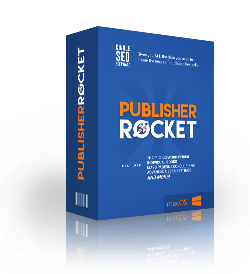
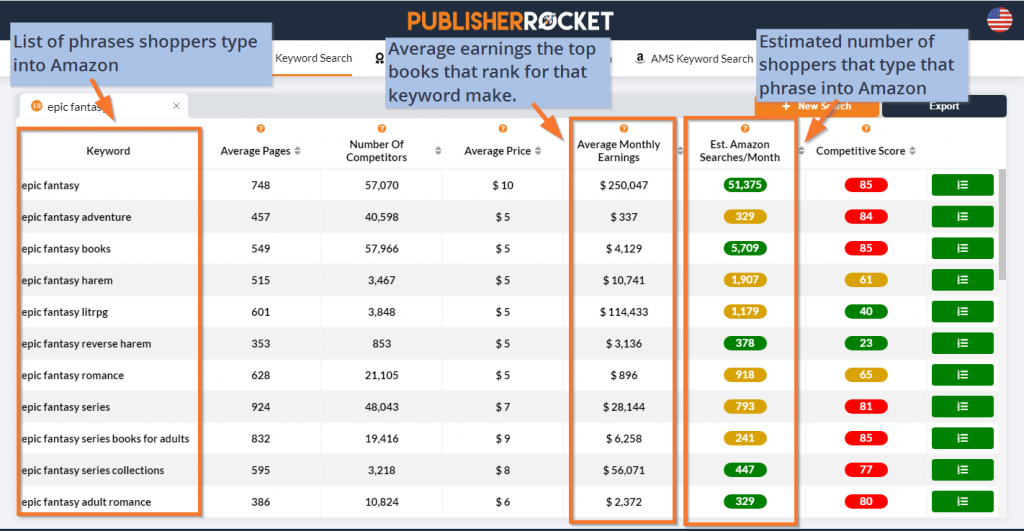
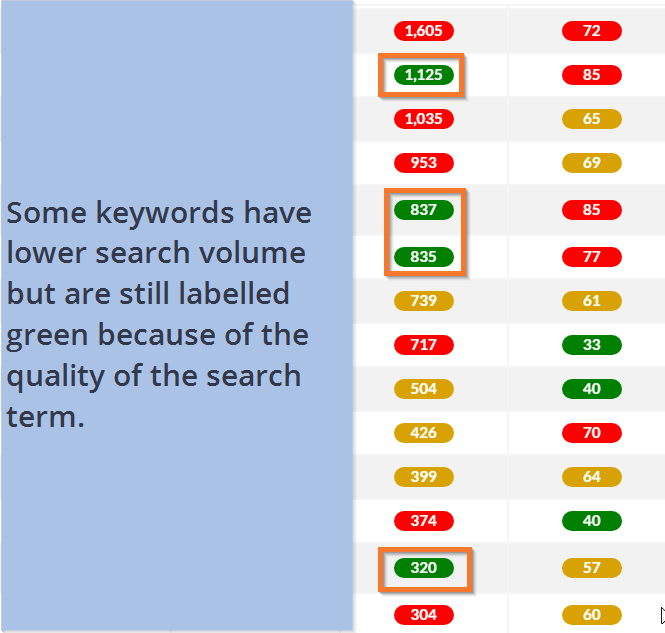


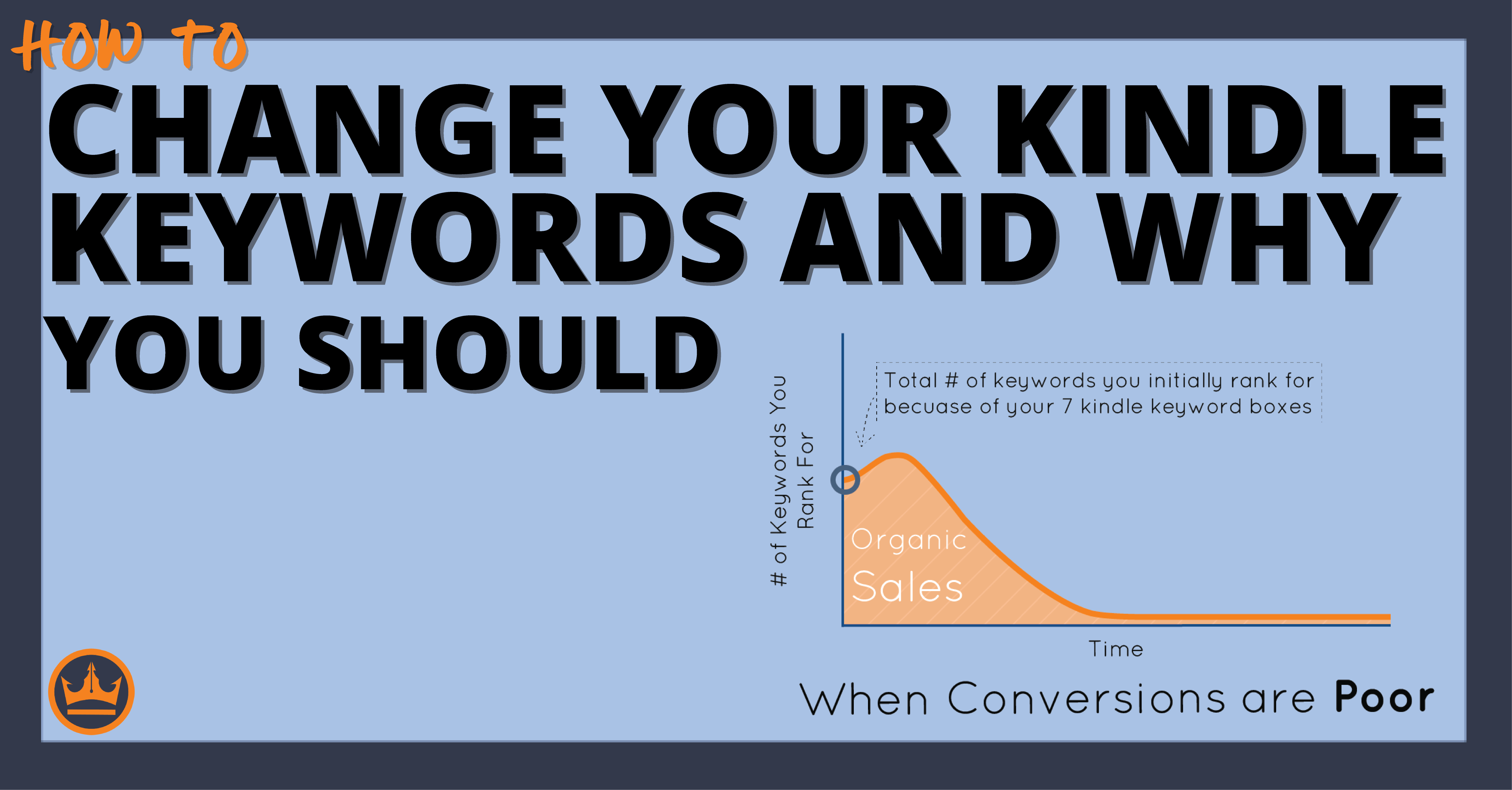
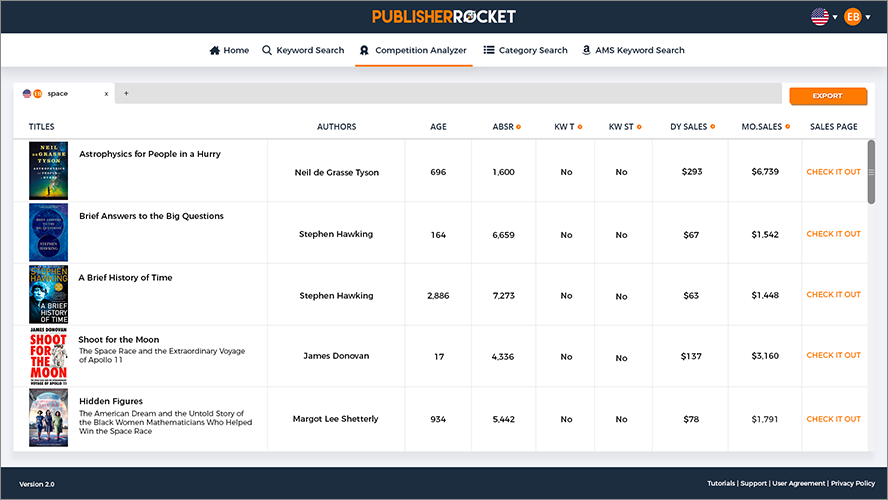
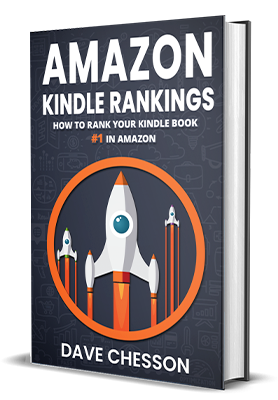
What example, where?
Fantasy Keywords Character Role Or Type Example
This example shows the power of a single word and its popularity vs. competitiveness. Using six different synonyms for a man who performs magic, you can see where some opportunities lie. As you can see œmage seems to offer the most optimal opportunities. Now, please understand that there are vast differences between a warlock and a magician, and this isn ‘t to say you should choose one when it doesn ‘t fit your book. But when you have some that are very close like œwizard and œmage, your book will have more opportunity to be discovered by going with the keyword œmage.
Is it okay to use other book titles and the author names in our book descriptions?
So long as it is not misrepresenting anything or misleading. Saying a statement like “If you like Ready Player One, then you’ll love this” is okay. But stuffing other book names or author names into it or saying something misleading, then no.
Dave, I’ve referred to this article several times over the past months, but one point still eludes me. What determines a book`s rank in the search results? Using the tool to find a low competition phrase with fairly high searches per month won’t help if you book always ranks in the results in the double digits (down the list customer sees). I’m guessing the rank is a sales rank, which immediately causes a boot-strapping problem like so much of the industry. Hoping you can point out what I’m missing. Thanks. -Jim Stein
Hi Jim. One of the content upgrades that I have for my email list is a free book on Kindle Rankings which breaks down all the things that go into increasing your book`s rankings on Amazon. If you are a part of the email list, revert back to the first email sent out which takes you to a special page where all content upgrades are (including the book). If you cannot find that, email me and I’ll send you the link.
Hello Dave,Let me start by saying I appreciate the free help and good advice you offer writers and thank you for your time and effort.That was the bouquet – now Here is the brickbat.You point out that by being more specific with your keywords, you can significantly reduce the competition and stand more of a chance of your book appearing at or near the top of a search list. Your example is that by winnowing down from the catchall Science Fiction to Space Marine Bug Hunt, you can cut the competition down to almost nothing. But the problem is, you only cut the competition down to nearly nothing for the simple reason that hardly anyone is searching on such a specialised search term as Sapce Marine Bug Hunt – you’ve got rid of the competition by marooning yourself on a desert island with no book buyers!
Haha. This article should help you understand a bit more and why that was a swing and a miss with the brickbat: https://www.janefriedman.co…
Dave, your information is extremely helpful. I am doing keywords searches using rocket and I have a question. I have found a few words that have a low competition score (such as 7 or 35) but there are quite a few competators listed (like 25K, or a couple hundred). So my question is- if the competition score is low but there are several thousand authors using that word, is it a profitable keyword(and/or phrase). I.e. if I found a keyword phrase that had 25K authors listed, 2K customers searching it, and the competition score is 35, this is a good keyword?
Or should I just focus on keywords that do not have thousands of authors using it…?
Hi Emily. Great question. I do not ever look at the number of competitors (its only in the software because back in the day, some gurus taught everyone that it was important so our beta testers demanded it – but it is not a part of our competition score). This is because I do not need to know how hard it is to beat the 25k books out there…I just need to know how to beat the top 5. The top 5 are the ones that comprise of 60% of the total clicks. Book 20 only gets <1%. So, if I can beat 1-5, then I know I can benefit from the keyword. If I cannot, then no use targeting that keyword.
:O oohhhhhhhhhh :0 this is exciting news and yes It is best to target those darn best sellers!!!! knock ’em out lol jk jk thank you.
Haha, you got it!
one more quick question- when I type my keywords into the keyword boxes in kindle. Do I need to have a comma after each word? And do I need to put a keyword phrase in quotation or something similar? I’m a little confused by what I’m seeing from different people on YouTube and I cannot seam to find that info on kdp jumpstart.
No, no. Just write them in.
ok, thank you.
Seriously glad to help!